Mountain Valley and Atlantic Coast Pipeline Challenges Continue
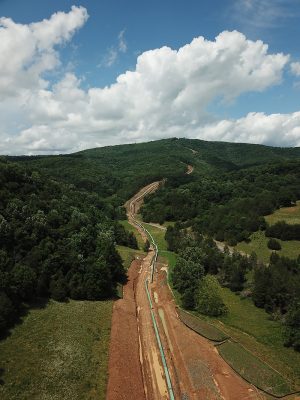
Mountain Valley Pipeline construction near Indian Creek in West Virginia. Photo courtesy of Appalachians Against Pipelines
The judges called both agencies’ original decision to issue both permits “arbitrary and capricious,” stating that the Fish and Wildlife Service did not set a limit on how much harm could be done to the five species and that the National Park Service did not explain how the pipeline’s crossing would be consistent with the agency’s conservation mission.
This follows an Aug. 3 FERC decision to issue a stop-work order for the entire Mountain Valley Pipeline, which cited a July 27 decision by the federal appeals court to strip Mountain Valley of permits from the U.S. Forest Service and Bureau of Land Management needed for the pipeline to cut through 3.5 miles of the Jefferson National Forest. The July decision came as a result of a challenge from the Sierra Club, Wild Virginia and Appalachian Voices.
Federal judges wrote, “American citizens understandably place their trust in the Forest Service to protect and preserve this country’s forests, and they deserve more than silent acquiescence to a pipeline company’s justification for upending large swaths of national forestlands. Citizens also trust in the Bureau of Land Management to prevent undue degradation to public lands.”
The Atlantic Coast Pipeline’s permit to cross the George Washington and Monongahela national forests is facing a similar challenge brought by Sierra Club, Wild Virginia and other organizations. It is scheduled for a hearing on Sept. 28.
In both stop-work orders, FERC noted that should federal agencies authorize alternative routes, pipeline developers may need to revise substantial portions of the route and possibly require further authorizations and environmental reviews. Both orders also state that “allowing continued construction poses the risk of expending substantial resources and substantially disturbing the environment by constructing facilities that ultimately might have to be relocated or abandoned.”
Both of FERC’s orders note that pipeline developers are permitted to do work that FERC or other land management agencies deem necessary “to ensure the stabilization of the right of way and work areas.”
The slew of legal battles against Mountain Valley has caused developers to push back the expected completion date from late 2018 to early 2019. In June, the 4th Circuit suspended the pipeline’s construction across waters in West Virginia when the judges granted a stay of a crucial permit under section 404 of the Clean Water Act. The permit, issued by the Army Corps of Engineers, is needed for the Mountain Valley Pipeline to cross nearly 600 water bodies in West Virginia, including the Greenbrier, Elk and Gauley rivers.
On Aug. 1, the same court ruled in favor of Mountain Valley, upholding the Virginia State Water Control Board’s decision under Clean Water Act section 401 to allow the pipeline to cross streams and wetlands in the commonwealth. The 4th Circuit also ruled in favor of pipeline developers on July 25 by upholding Mountain Valley’s usage of eminent domain to take private land against landowners’ wishes.
Ben Luckett with Appalachian Mountain Advocates, a nonprofit law firm involved in the Clean Water Act case, told The Roanoke Times that the groups will “continue to pursue all other available legal avenues to oppose this harmful and unnecessary project.”
As of Aug. 2, Virginia and West Virginia environmental regulators have issued six notices of violation to the Mountain Valley Pipeline for failure to control erosion and stormwater runoff, which could lead to the state agencies issuing fines or stop-work orders.
Steep Slopes
In the predawn hours of June 7, TransCanada Corporation’s Leach XPress Pipeline exploded in Marshall County, W.Va., and burned for several hours. No injuries or property damage were reported, although the blast left a crater and scorched an estimated 10 acres, according to WTRF News. The pipeline began service in January, at which time TransCanada President and CEO Russ Girling said, “this is truly a best-in-class pipeline and we look forward to many years of safe, reliable and efficient operation.”
The U.S. Pipeline and Hazardous Materials Safety Administration estimates the explosion resulted from a landslide that put stress on a weld, and stated in July that “it appears conditions exist on [TransCanada’s] pipeline system that pose an integrity risk to public safety, property or the environment.” Although TransCanada identified six other “areas of concern” along the 160-mile pipeline’s path, the pipeline resumed service in mid-July.
Mountain Valley Southgate Extension
In June, Mountain Valley Pipeline developers held open houses in three counties to address questions and concerns regarding MVP Southgate, the pipeline’s proposed 70-mile expansion into North Carolina. Announced in May, the 24-inch fracked-gas pipeline would run from Virginia’s Pittsylvania County through North Carolina’s Rockingham and Alamance counties. Industrial compressor stations to pressurize the gas would be built in Pittsylvania County and Rockingham County.
The private companies behind MVP Southgate expect the $350 million project to be operational by late 2020, contingent on approval from the Federal Energy Regulatory Commission and the states of North Carolina and Virginia. So far, residential heating provider PSNC Energy is the only purchaser of the gas.
Opponents of the pipeline like Ridge Graham, North Carolina field coordinator with Appalachian Voices, are skeptical of the pipeline developers’ claims that it is needed to bring affordable natural gas to the region.
“The fact is that this extension is ultimately unnecessary,” said Graham. “PSNC Energy, the only announced purchaser of gas for the extension, is served by eight other pipelines, including the massive Williams Transco Pipeline that runs through the very same county.”
The Leach XPress explosion has intensified calls from environmental groups to stop construction on fracked gas infrastructure snaking across Appalachia. TransCanada is also building the 165-mile Mountaineer XPress Pipeline through 14 West Virginia counties. Scheduled to enter service in late 2018, Mountaineer XPress had received six notices of violation from West Virginia regulators as of Aug. 2.
The Indian Creek Watershed Association, a community group in Monroe County, W.Va., expressed their concerns about the similar landscape the Leach XPress and the Mountain Valley Pipeline slash through in a July 17 letter to the Federal Energy Regulatory Commission.
“The similarities of terrain — particularly the prevalence of steep slopes and landslide-prone areas along [Mountain Valley Pipeline’s] 300-mile route through West Virginia and Virginia — make the Leach Xpress explosion yet another wake-up call about the dangers of MVP’s selected route,” the letter reads. The organization also pointed out that the 42-inch diameter Mountain Valley Pipeline is wider and would carry more gas than the 36-inch Leach XPress Pipeline.
On June 29, Mountain Valley voluntarily suspended construction in parts of Southwest Virginia after heavy rains overwhelmed sediment and erosion control measures. Virginia regulators issued a formal notice of violation on July 9, outlining eight likely violations of the law. Work had resumed at 33 of the 35 locations by July 23 after Virginia regulators approved the new measures, Kallanish Energy reports.
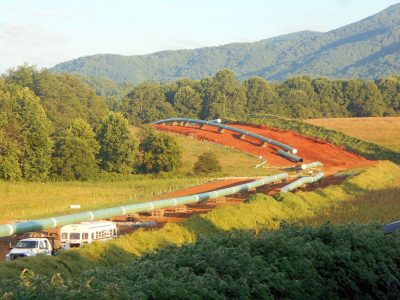
Sections of the Mountain Valley Pipeline sit atop Anne Bernard’s scarred Franklin County, Va., land. Pipeline developers used eminent domain to seize Bernard’s land and the land of roughly 300 others in March. Photo by Anne Bernard
Atlantic Coast Pipeline
On July 27, the U.S. Army Corps of Engineers suspended construction of the 600-mile Atlantic Coast Pipeline at all West Virginia river crossings at the request of Dominion Energy and other developers, following the court-ordered stay on the Mountain Valley Pipeline’s water crossings, according to the Richmond Times-Dispatch.
“Allowing this additional time for review is in the best interest of the environment and West Virginia’s natural resources,” Dominion spokesman Aaron Ruby told the Richmond newspaper.
On July 23, FERC approved full construction of a 115-mile North Carolina section of the 600-mile Atlantic Coast Pipeline, according to the Charlotte Business Journal. Construction has been halted along 100 miles of the pipeline in Virginia and West Virginia since mid-May, when a federal court determined that a review of impacts to endangered species conducted by the U.S. Fish and Wildlife Service was insufficient.
FERC did not require Atlantic Coast developers to take any further steps to protect endangered species in North Carolina, even though the approved section intersects rivers designated as critical habitat for the endangered Atlantic sturgeon. The Neuse River waterdog — a type of salamander under review for federal protection and listed by the state as “special concern” — also lives in the pipeline’s approved path.
Dominion has continued construction in West Virginia areas not affected by pending litigation and intends to begin construction in Virginia later this year, according to the Charlotte Business Journal.
On July 31, four Republican senators introduced a bill to make it more difficult for states to use the federal Clean Water Act to slow or prevent construction of fossil fuel infrastructure. The bill would limit the scope of what states can consider when conducting a section 401 review, further streamlining the permit process and removing states’ authority to protect their waters.
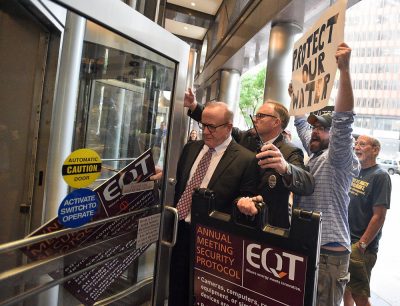
Protesters confront EQT Midstream Partners, developers of the MVP, at the company’s June shareholders’ meeting in Pittsburgh. Photo by Steve Dietz/Appalachians Against Pipelines
Protests Block Construction
Protests against the Mountain Valley Pipeline have continued throughout the summer. On July 31, retired Monroe County, W.Va., teacher Becky Crabtree blocked construction for several hours by barricading herself in a 1971 Ford Pinto on top of wooden blocks. The Pinto was on a section of her land that Mountain Valley obtained through eminent domain. After police safely extracted Crabtree, she was arrested and charged with a misdemeanor, according to the Bluefield Daily Telegraph. Crabtree was released from jail the same day.
“Today’s effort was a bit extraordinary but these are extraordinary times,” she told the Telegraph. “Pintos are obsolete and so are fossil fuels!”
On June 28, Emily Satterwhite, a Virginia Tech associate professor of Appalachian studies, locked herself to pipeline construction equipment in Jefferson National Forest. Police removed her after 12 hours, after which she was checked by a doctor and arrested. She has since been released from jail on bond.
In Monroe County, W.Va., a protestor named Max was sentenced to two days in jail after locking himself to pipeline construction equipment in early June, according to Appalachians Against Pipelines. Fern MacDougal, who obstructed pipeline construction for 12 days on an aerial platform in the Jefferson National Forest in May and June, also spent two days in jail, according to the group.
Mariner East 2
Sunoco’s 350-mile Mariner East 2 Pipeline is slated to stretch across Pennsylvania. In July, three environmental groups — the Mountain Watershed Association, the Clean Air Council and the Delaware Riverkeeper Network — dropped their appeals over permits the Pennsylvania Department of Environmental Protection issued to Sunoco, according to the Tribune-Review. In return, the DEP agreed to increase transparency with pipeline project documents and will create a stakeholder group within 90 days composed of representatives from the DEP, the three environmental groups and pipeline proponents.
On July 27, Huntingdon, Pa., retired special ed teacher and pipeline protester Ellen Gerhart was jailed and placed on a $25,000 cash bail for allegedly violating a court order to not interfere with pipeline construction workers, according to StateImpact Pennsylvania. Her daughter Elise told StateImpact that Ellen is unable to meet bail and will remain in jail until her next court appearance on Aug. 3.
As of Aug. 2, the DEP has issued 70 notices of violation to Mariner East 2 developer Sunoco. Construction on parts of the pipeline in West Whiteland Township, Pa., remain halted as of press time after a judge ordered a safety review in May. The adjacent Mariner East 1 Pipeline, however, was allowed to restart in June.
The pipeline opponent known as “Nutty,” who blocked pipeline construction in a monopod for 57 days on Peters Mountain in Virginia, is scheduled to appear in court in August, The Roanoke Times reported. Three men — Doug Chancey, John Nicholson and Galen Shireman-Grabowski — who attempted to resupply Nutty with food and water during the protest were each fined $100.
“I am not a criminal, although I have been treated as one, having been placed in leg shackles for over five hours during my arrest,” Chancey told The Roanoke Times.
FERC Changes
On June 28, FERC Commissioner Robert Powelson announced he would step down from the federal agency in August. He was nominated by President Trump in May 2017. FERC will be split 2 to 2 between Democrats and Republicans when Powelson leaves, which could put pipeline approvals on hold. A coalition of 25 unions and energy and business trade groups wrote to Senate leadership and implored them “to vote as early as possible on FERC confirmations.”
In a statement, Mary Anne Hitt, senior director of Sierra Club’s Beyond Coal campaign, said, “The next commissioner must be a strong advocate for considering climate change in FERC’s decision making process, curtailing the dangerous overbuilding of fracked gas pipelines, and stand firmly against reckless coal and nuclear plant bailouts the Trump Administration and grid operators are proposing.”
Since 1999, FERC has only rejected two out of approximately 400 pipeline projects. An official comment period regarding FERC’s pipeline approval process ended on July 25. The agency sought feedback on how it evaluates pipeline need, use of eminent domain for pipelines, regulatory efficiency and how it assesses environmental impacts.
Environmental groups, including Appalachian Voices, submitted comments asking FERC to conduct a deeper analysis of both the market demand for fracked gas and the environmental impacts of existing and proposed pipelines. Additionally, the groups want FERC to give more weight to the voices of those directly impacted by the projects.
Related Articles
Latest News

Leave a comment
Your email address will not be published. Required fields are marked *
One response to “Mountain Valley and Atlantic Coast Pipeline Challenges Continue”
-
Thanks for noting the hazards and construction violations of the MXP in western West Virginia. It has been a challenge to keep folks informed about this one.



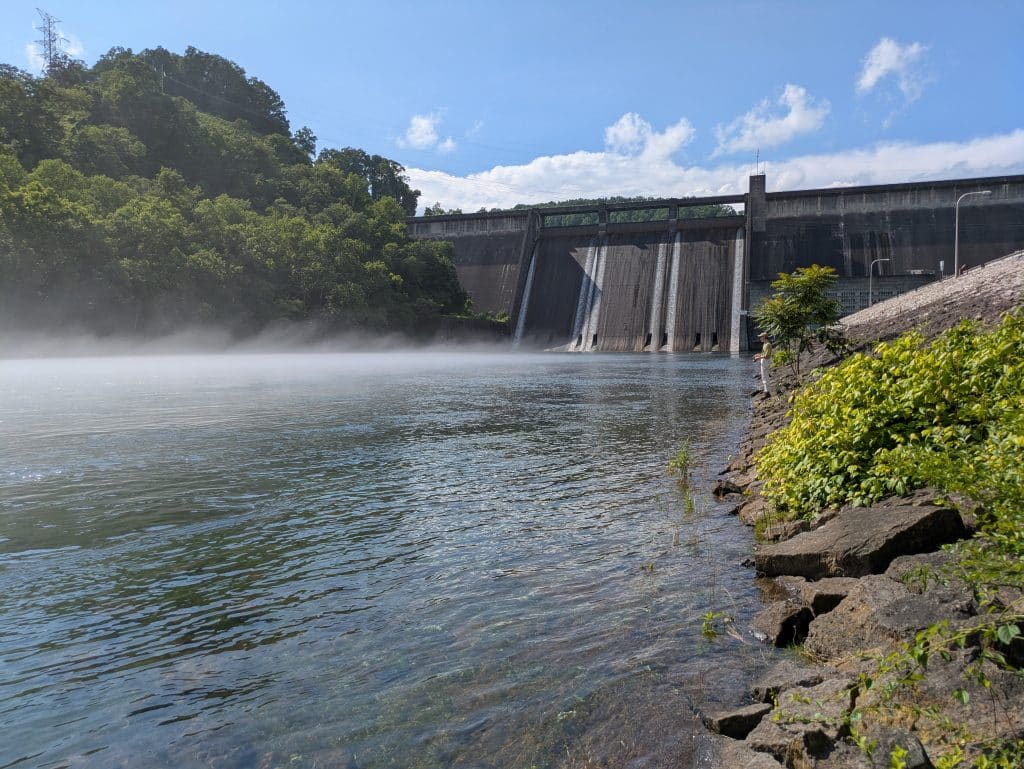
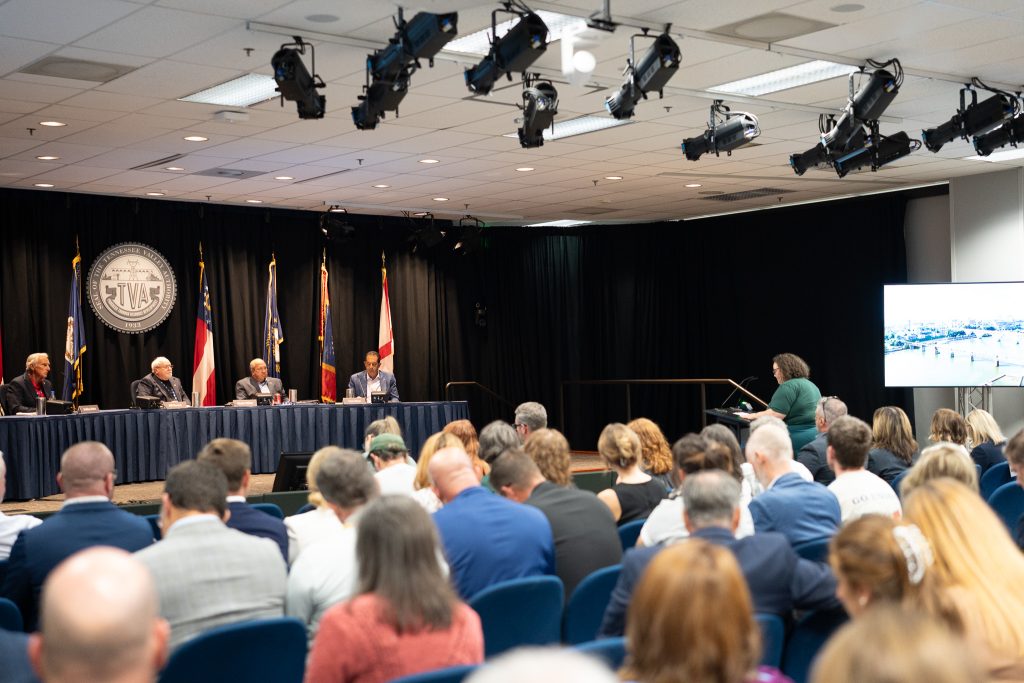
Leave a Comment